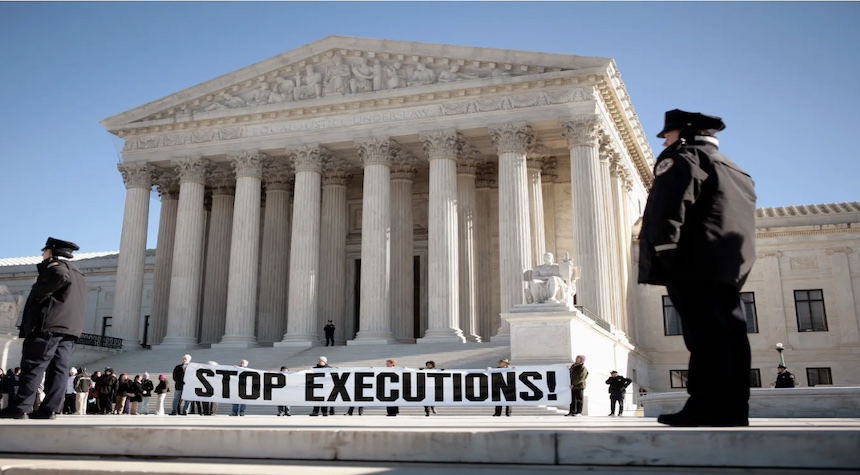The U.S. Supreme Court agreed to hear a major case involving capital punishment in Oklahoma. The Supreme Court will hear the case of Richard Glossip who has been on death row for over a decade after being convicted of murder.
Glossip’s innocence has been maintained from the start. Later, major holes in the prosecution’s case were discovered, casting doubt on Glossip’s guilt. He remains in jail awaiting execution. This has caused controversy in the discussion of capital punishment. In this case, the Supreme Court is expected to issue a major ruling.
The Supreme Court decided on Monday to hear the extraordinary appeal by Richard Glossip of Oklahoma, who was sentenced to death and whom even the attorney general for the state said shouldn’t be executed.
In May, the court halted executions while the legal process played out.
Glossip spent 26 years in prison, was nine times executed, had three meals as his last meal, and underwent two independent investigations which raised serious questions about his conviction.
John Mills, Glossip’s lawyer, stated in a press release that they were grateful for the opportunity the court gave Richard Glossip to make his case that Oklahoma shouldn’t be allowed to kill him. The court should overturn the Oklahoma Court of Criminal Appeals which, for some reason, refused to accept the state’s admission of error.

Oklahoma Attorney General Gentner Drummond said that Oklahoma had made a “difficult” decision to admit error in Glossip’s case. He supports the vacating of Glossip’s conviction. This was a complete reversal of the previous decision and followed a review of newly discovered information related to prosecutorial malpractice at Glossip’s trial.
The Oklahoma Court of Criminal Appeals, however, refused to accept this confession of mistake and determined that the execution should proceed.
Glossip has been convicted of being involved in an organized murder plot for hire to kill his employer.
The case started in 1997 when Barry Van Treese was killed by Glossip, the manager of the Best Budget Inn, in Oklahoma City. Glossip was the manager of the hotel and was accused of conspiring to murder Justin Sneed, a maintenance worker. Sneed confessed and said that Glossip paid him to commit the murder.
Glossip, who was convicted in 1998 of murder based on Sneed’s testimony, has been on death row ever since. Since then, he has been fighting to prove his guilt and avoid execution. Over the years, many high-profile people and organizations have been involved in his case. This includes actress Susan Sarandon who has been vocal about his cause.

Sneed’s credibility, or lack thereof, in this case, is a major problem. Sneed claimed he was the only one responsible for the murder but changed his story later and accused Glossip. In exchange for his testimony, he was offered a plea bargain, and some believe that this gave him the incentive to accuse Glossip to avoid the death penalty.
Glossip is also facing a problem with the lack of physical proof that ties him to the crime. No fingerprints or DNA were found at the crime scene to definitively tie Glossip’s involvement in the murder. The prosecution instead relied heavily upon Sneed’s testimony and circumstantial proof, such as Glossip’s presence in the hotel the night of the murder.
Glossip’s attorneys have raised concerns regarding the prosecution’s misconduct and withholding of evidence, particularly about Sneed’s credibility and mental health. These concerns, if they are confirmed to be true, would undermine Sneed’s conviction.
It is also noteworthy that Attorney General Drummond was willing to speak up for Glossip during his clemency proceedings. It is rare for a prosecutor to take such a step. Glossip has also been backed by both Republican and Democrat lawmakers.
The Supreme Court’s decision in the Glossip case does not just represent one man’s struggle for justice. It also represents a wider critique of the death sentence as states continue to debate whether or not to continue this practice. The inevitable fact that innocent people would be sentenced to die and executed is a major issue for those opposed to capital punishment. The Supreme Court’s ruling will likely have a significant impact on Glossip and possibly other cases.

